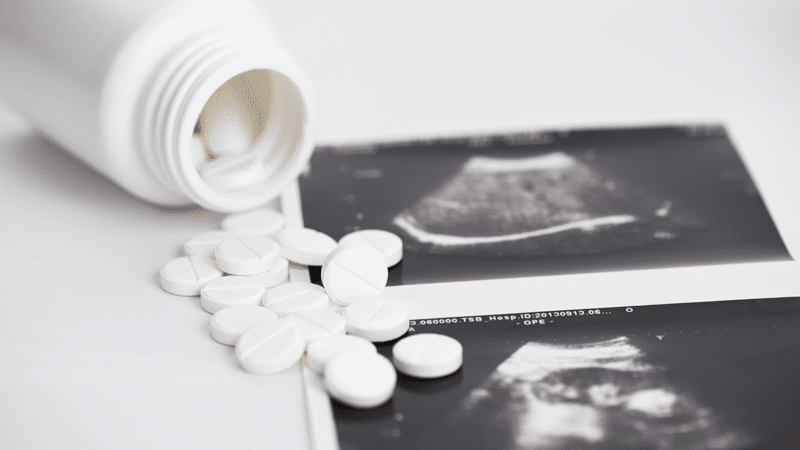Mythbuster: DIY abortion pills are neither simple nor safe

Since the start of the Covid pandemic in the UK, women have been allowed to take the two pills involved in chemical abortions at home and without medical supervision. These ‘emergency’ measures were supposed to be temporary, but Westminster, Holyrood and Cardiff Bay are all considering making them permanent.
Unsurprisingly, pro-abortion activists are campaigning for these DIY abortion rules to be extended. But in her obsession for ever easier abortion access, long-time campaigner Ann Furedi makes assertions about home abortions in a recent article which don’t stand up to scrutiny.
Firstly, she calls it “mind-numbingly stupid” for women to have to go to a clinic to take an abortion pill. She even claims: “All the evidence shows it is safe and sensible to combine telemedical consultations with pills-by-post.” This is simply is not true.
Hospitalised
A recent investigation by a former Director of abortion giant Marie Stopes International revealed that complications due to abortion pills led to one in 17 women in England who took them needing hospital treatment. This equates to at least 10,000 women attending hospital suffering from serious side effects since March 2020 when the Government first allowed both abortion pills to be taken at home.
Kevin Duffy’s investigation, based on data obtained through FOI requests, found that more than half of this cohort required surgical intervention and over a third needed medical help due to haemorrhaging.1 in 17 women in England taking DIY abortion pills needed hospital treatment – more than half required surgical intervention.
A separate FOI request showed that ambulance call-outs in April-December 2020 involving abortion pills were 54% higher than the equivalent period in 2019. This does not take into account the women making their own way to hospital rather than calling an ambulance, or those who do not admit to taking the pills.
Abortion pill manufacturer Ranbaxy, which makes abortion pills used by Britain’s largest abortion provider BPAS, clearly acknowledge the potential dangers the pills pose, stating: “the treatment procedure should only be performed where the patient has access to medical facilities equipped to provide surgical treatment for incomplete abortion”.
Care or convenience?
Furedi boldly states that “everyone agrees that the best place for [a woman] to be for this induced miscarriage is in her own home”. In fact, there have been many voices raised in opposition to DIY home abortions over recent months, including from GPs, past Royal College presidents and other medics.
Abortion is abortion whether in a hospital or at home, and it always ends in the tragic loss of life for the developing baby. But the simple fact is that if you make something easier, then more people will do it. Allowing women to have abortions at home and removing the requirement to see a doctor face-to-face will eventually mean yet more loss of life.
Furedi treats abortion lightly. She shouldn’t. This is more than a simple disagreement over “the location of a woman’s pill-swallowing”. The lack of medical supervision for the administration of these powerful drugs exacerbates all the risks. Women need to know that these drugs are not “simple and safe to use” medicines. Experiencing haemorrhaging, cramps and sometimes excruciating pain without medical help close at hand is hardly good care for women. Nor is the trauma of having to dispose of a tiny baby yourself, alone, at home.
Our governments should not sacrifice care of women for the sake of convenience.
